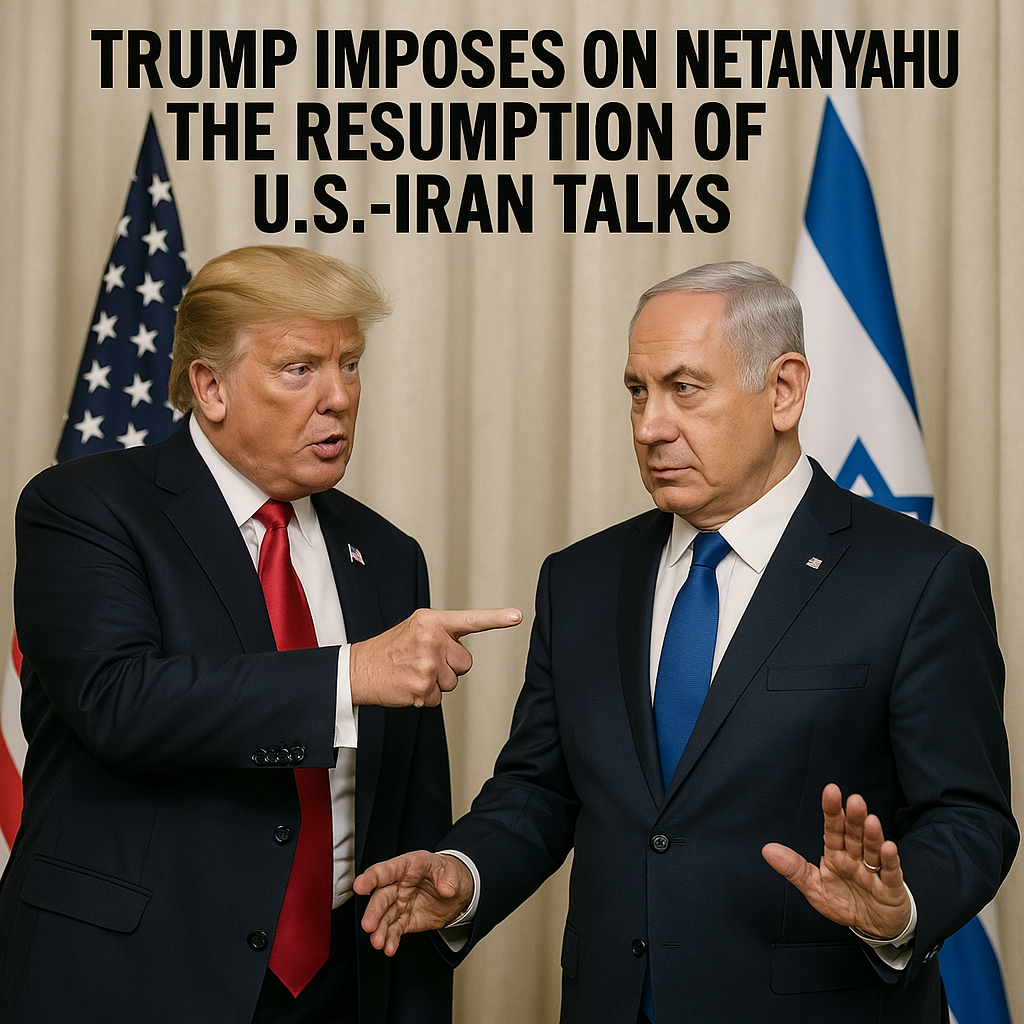Don't miss our holiday offer - up to 50% OFF!

Donald Trump Imposes on Benjamin Netanyahu the Resumption of U.S.-Iran Talks
In a surprising geopolitical twist, former U.S. President Donald Trump has reportedly urged Israeli Prime Minister Benjamin Netanyahu to facilitate the resumption of talks between the United States and Iran. This unexpected move comes at a critical time when global tensions are high, and the Middle East remains a boiling cauldron of conflicting interests.
Understanding the Historical Context
U.S.-Iran tensions: A decades-long standoff
The conflict between the U.S. and Iran stretches back over four decades, marked by sanctions, proxy wars, and political posturing. From the 1979 hostage crisis to the U.S. withdrawal from the Iran nuclear deal (JCPOA) under Trump, relations have been volatile and unpredictable.
Benjamin Netanyahu’s stance on Iran
Netanyahu has been one of the fiercest critics of Iran, especially its nuclear ambitions. His speeches at the UN, complete with dramatic props and warnings, have become iconic representations of Israel’s hardline stance.
Donald Trump’s policy towards Iran
Trump’s tenure saw the U.S. pulling out of the JCPOA, implementing “maximum pressure” through sanctions, and the assassination of Iranian General Qassem Soleimani. Talks were out of the question during his presidency—until now.
The Political Pressure Behind Trump’s Move
Trump’s motivations and political comeback
As Trump eyes a 2024 comeback, rebranding his foreign policy credentials could be part of a bigger strategy. A bold move like pushing for U.S.-Iran dialogue paints him as a dealmaker again—à la “The Art of the Deal.”
Netanyahu’s complicated alliance with Trump
While Netanyahu and Trump have shared a mutually beneficial political bromance, this demand could test the limits. Netanyahu’s domestic challenges add further complexity to complying with Trump’s call.
Geopolitical calculations in the Middle East
The Middle East is a chessboard, and both leaders are experienced players. Trump’s proposal could reshape alliances and open a new chapter of diplomacy—or reignite old tensions.
Trump’s Demand Explained
What does Trump want from Netanyahu?
Simply put: leverage. Trump believes that Netanyahu, with his deep regional ties and political sway, can act as a middleman to reinitiate dialogue with Iran.
Resumption of U.S.-Iran talks: Terms and expectations
The talks would likely center around restarting JCPOA negotiations or a new framework entirely, possibly softer than the Obama-era deal but enough to curb Iranian nuclear ambitions temporarily.
The role of Israel in the negotiation puzzle
Israel is both a stakeholder and a wildcard. While the country stands firmly against Iranian nuclear capabilities, acting as a mediator is not traditionally its role. Trump wants to change that narrative.
Netanyahu’s Reaction and Response
Public and private responses
Publicly, Netanyahu remains tight-lipped, but internal reports suggest resistance. His base would see such a move as a betrayal, while some moderates may view it as a diplomatic win.
Political fallout in Israel
This demand puts Netanyahu in a tight spot. Yielding could fracture his coalition; refusing could strain relations with Trump and his conservative supporters in the U.S.
Pressure from Israeli right-wing parties
Far-right voices in Netanyahu’s government may push back hard, making any move toward diplomacy politically toxic.
Implications for U.S. Foreign Policy
Potential outcomes of renewed U.S.-Iran talks
If successful, talks could ease global oil prices, improve regional security, and bring the U.S. back to the negotiating table with renewed influence.
Reactions from allies and rivals
Allies like the EU would welcome dialogue; rivals like China and Russia would watch closely, knowing any thaw in U.S.-Iran relations reshuffles the global balance.
Future of the Abraham Accords
Iran entering peaceful negotiations could challenge the anti-Iran coalition that fueled the Abraham Accords. Would normalization continue?
Regional Reactions
Saudi Arabia and Gulf states
Some Gulf nations might secretly welcome reduced Iran tension—less chaos means better economic prospects—but publicly they’ll stay cautious.
Iran’s initial reaction
Iran has not officially responded, but any approach connected to Trump will be met with skepticism, if not outright hostility.
European Union and the JCPOA perspective
Europe has long pushed for diplomacy. Trump’s pivot could revive hopes for a new deal, possibly one that balances security with economic engagement.
The Domestic Angle: Trump’s 2024 Strategy
Appeasing different voter blocs
By advocating diplomacy, Trump might court independent and moderate voters while still retaining his base with strong rhetoric.
Rewriting the Iran narrative
This move could be Trump’s way of flipping the script—transforming from warmonger to peacemaker, a twist only he could attempt.
Analysis by Experts
Strategic bluff or real diplomacy?
Some analysts argue it’s a bluff for political gain; others say it might be a serious pivot to leave a legacy or neutralize a brewing threat.
Is Netanyahu in a political trap?
Caught between Trump’s pressure and domestic backlash, Netanyahu could lose more than he gains, politically speaking.
Risks Involved
Escalation or breakthrough?
A misstep in negotiations or misinterpretation of intentions could trigger a dangerous escalation—military or cyber.
Sabotage from hardliners on both sides
Iranian hardliners and Israeli nationalists alike could try to derail talks, seeing them as weakness rather than strategy.
Future Scenarios
Best case and worst-case outcomes
Best case: a new deal, regional stability, and economic relief.
Worst case: talks collapse, tensions spike, and another war looms.
Role of international mediators
Nations like Qatar, Switzerland, or even the UN might step in to moderate, lending credibility and structure to the potential talks.
Conclusion
Donald Trump’s latest move to push Netanyahu into facilitating talks with Iran is as bold as it is risky. It’s a high-stakes gambit that could reshape the geopolitical landscape or backfire spectacularly. As the world watches closely, one thing’s certain—when Trump makes a move, it doesn’t go unnoticed.
FAQs
1. What did Trump demand from Netanyahu regarding Iran?
Trump reportedly asked Netanyahu to act as a mediator and help initiate a new round of talks between the U.S. and Iran.
2. How has Netanyahu responded?
So far, Netanyahu has not publicly committed, but internal reports suggest he’s wary of the political consequences at home.
3. What is the significance of this move?
It could redefine Trump’s foreign policy legacy and influence the 2024 U.S. elections, while altering Middle East dynamics.
4. Could this lead to actual negotiations with Iran?
Possibly—but only if both sides are willing to compromise and overcome decades of mistrust.
5. What are the risks involved?
Risks include political backlash, sabotage from hardliners, and the potential for renewed conflict if talks fail.





